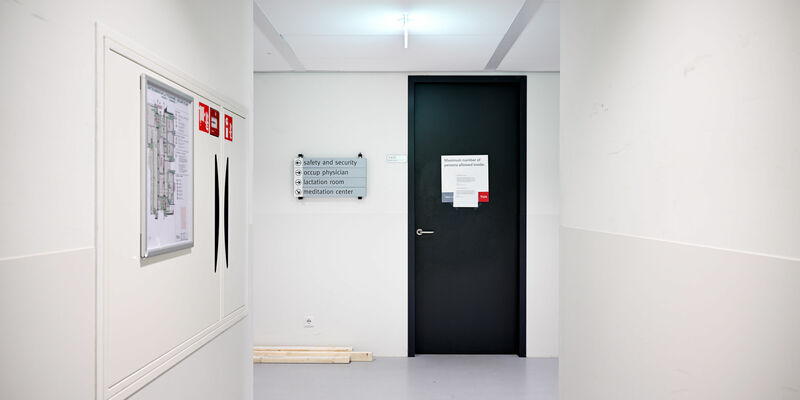
- Campus , Employee , Student
- 28/08/2023
Dijkgraaf will not make quiet rooms obligatory
Minister of Education Robbert Dijkgraaf will not force higher education institutions to set up quiet rooms. He does think that such rooms could have a positive effect on student wellbeing. In Atlas -1.635 there is space for about eight students or employees to pray or meditate.
Universities and universities of applied sciences have made agreements with student organisations about making students feel at home in their programmes. It was established that gender-neutral toilets and quiet rooms, amongst other things, are important for a ‘safe and inclusive study environment’.
The students devoted a special manifesto to the quiet rooms a month later. Religious students can pray there, but according to the manifesto the rooms can also serve as low-stimulus zones for students and staff with neurodivergent disorders, such as autism, who sometimes need to get away from the crowds.
Obligatory?
Political party DENK posed a number of questions to the minister about the matter. Would it be possible to make setting up a quiet room a legal requirement for educational institutions, MP Stephan van Baarle asked.
Dijkgraaf answered that he won’t be doing so. “It is not the government’s place to overtly pick sides in the debate on setting up quiet rooms or on making them obligatory.”
Obviously you can’t forbid students and staff to pray, Dijkgraaf explained, but the institutions are not required to set up a special room for this purpose. The same goes for no-stimulus zones, as there are other ways to help neurodivergent students and staff.
He does think that ‘inclusive and accessible quiet rooms’ may be important in making certain students feel at home at an institution. “As such, quiet rooms can contribute to inclusion and wellbeing at educational institutions.”
Controversy
Many higher education institutions already have quiet rooms, but their use as prayer rooms is sometimes subject to controversy. At the University of Amsterdam, facility services recently removed prayer mats and the room is also said to be too small for everyone wishing to use it.
Also the TU/e silence room is seen as too small by SA Salaam.
Nine years ago, Vrije Universiteit Amsterdam opened a praying room for Muslims, with a separate entrance for men and women. This led to a storm of criticism and parliamentary questions.
Discussion